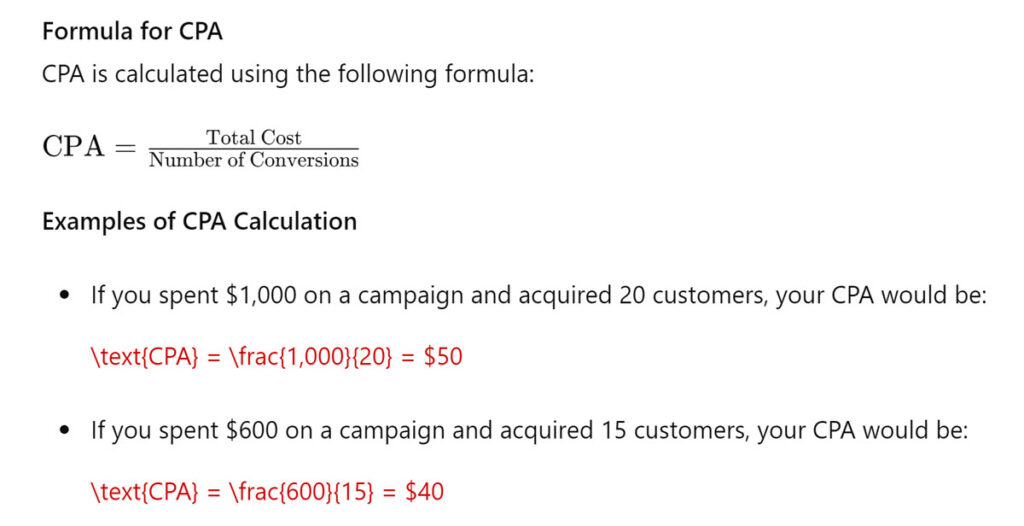
Cost Per Acquisition (CPA) is a critical metric in paid search marketing that measures the cost of acquiring a new customer. In this article, we’ll explore the significance of CPA, how to calculate it, the factors that influence it, and strategies to reduce it for better ROI.
Introduction to CPA
Definition and Significance Cost Per Acquisition (CPA) is the amount you pay to acquire a new customer through your paid search campaigns. It is a vital metric for evaluating the efficiency and profitability of your advertising efforts. CPA helps you understand how much you are spending to gain a new customer and allows you to optimize your budget allocation.
Why CPA Matters in Paid Search Marketing CPA is crucial because it directly impacts your profitability. Lowering your CPA while maintaining or increasing your conversion rate can significantly enhance your return on investment (ROI). Monitoring and optimizing CPA ensures that your advertising spend is used efficiently to drive valuable customer acquisitions.
How to Calculate CPA
Formula for CPA CPA is calculated using the following formula:

Factors Influencing CPA
Quality of Traffic The quality of traffic driven to your website significantly affects your CPA. High-quality, targeted traffic is more likely to convert, resulting in a lower CPA. Focusing on attracting relevant visitors can improve your overall campaign efficiency.
Conversion Rate A higher conversion rate leads to a lower CPA, as more visitors are completing the desired action. Optimizing your landing pages and improving the user experience can enhance your conversion rate and reduce CPA.
Bid Strategies Different bid strategies can influence your CPA. Manual CPC, enhanced CPC, and automated bidding strategies each have their advantages and can impact your overall costs. Selecting the right strategy based on your campaign goals can help control CPA.
Ad Relevance and Quality Score Ads that are highly relevant to the user’s search intent and have a high Quality Score can achieve lower CPCs, which in turn can lower CPA. Ensuring that your ads and landing pages are relevant and of high quality can positively impact your CPA.
Ways to Reduce CPA
Targeting High-Intent Keywords
- Focus on keywords that indicate a high intent to purchase or convert.
- Use long-tail keywords to attract more qualified traffic with a higher likelihood of conversion.
Optimizing Ad Copy and Landing Pages
- Create compelling and relevant ad copy that resonates with your target audience.
- Ensure that your landing pages provide a seamless and persuasive experience, aligned with the ad’s promise.
Improving Quality Score
- Enhance the relevance of your ads and landing pages to improve Quality Score.
- Regularly monitor and optimize your ad performance to maintain a high Quality Score.
Utilizing Automated Bidding Strategies
- Use automated bidding strategies like Target CPA and Target ROAS to optimize bids based on your desired cost per acquisition.
- Leverage machine learning and data insights to make informed bidding decisions and control costs.
Information Table on CPA Benchmarks by Industry
| Industry | Average CPA |
|---|---|
| Retail | $45.27 |
| Financial Services | $55.48 |
| Travel & Hospitality | $44.73 |
| Technology | $60.48 |
| Education | $51.40 |
| Healthcare | $48.07 |
| Real Estate | $41.14 |
| Legal | $86.02 |
| Automotive | $43.84 |
| E-commerce | $45.27 |
In the next article, we will explore Return on Ad Spend (ROAS), discussing its importance, how to calculate it, factors affecting it, and strategies to improve ROAS for better campaign performance.

